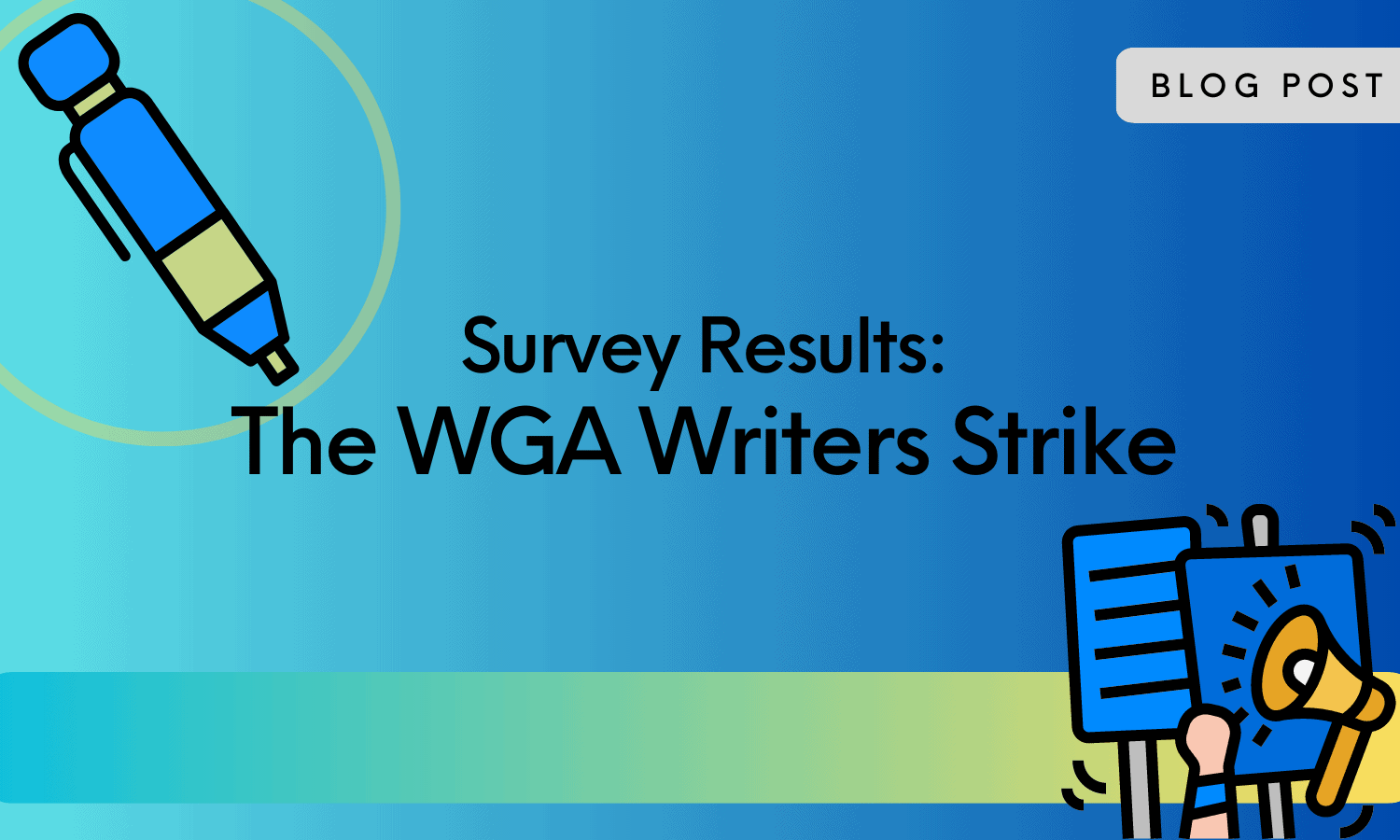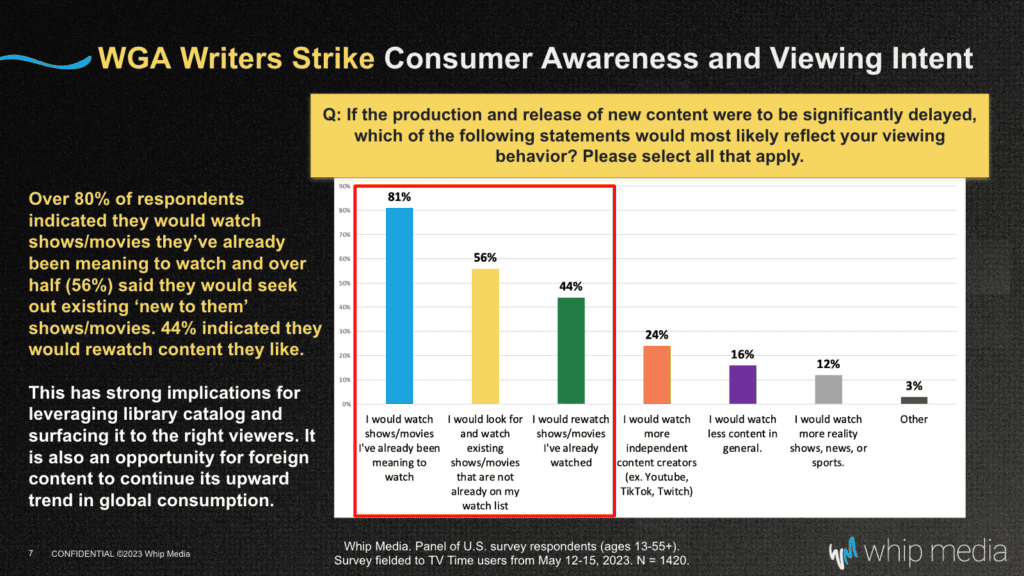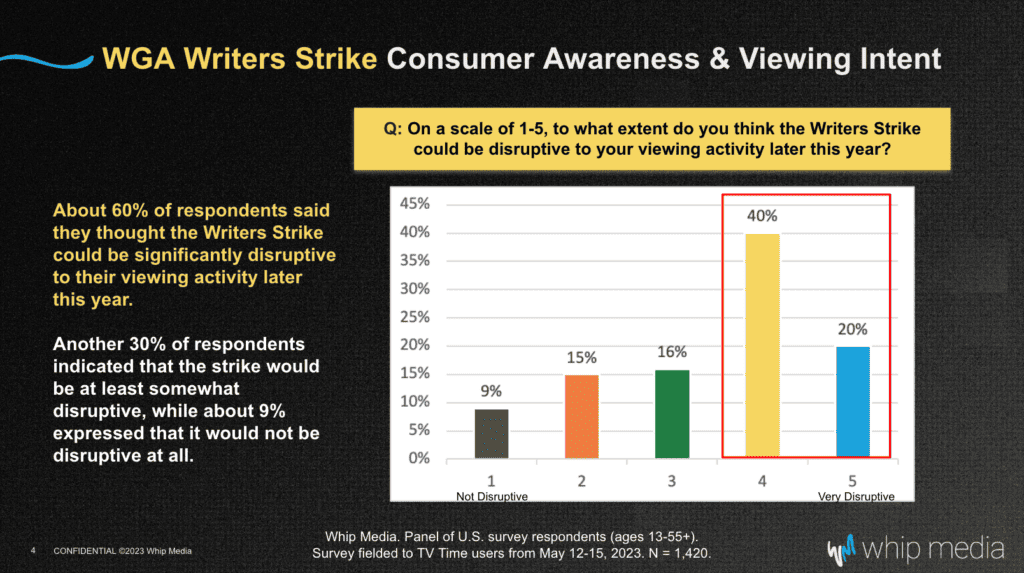
Most TV and movie fans are aware of the WGA writers strike – and they’re starting to get a bit worried it’ll impact their favorite content.
That’s perhaps the key takeaway from a new Whip Media survey looking at consumer awareness of the strike.
Here’s what you need to know:
Whip Media fielded its survey to active users of the TV Time app between May 12-15. The survey had 4,839 total respondents from the U.S. and France, Italy, Germany, Spain and the United Kingdom; 1,420 of those respondents were Americans.
A vast majority – 83% of American respondents – said they were aware of the writers strike. That’s a sizable chunk, even when considering TV Time users tend to be big TV and movie fans and are more likely to stay up-to-date on the latest industry news.
Most viewers are also starting to worry the writers strike could be disruptive to their viewing activity later this year. Overall, 60% of American respondents said they think the strike will be “somewhat” or “very disruptive” to their favorite shows and movies, when asked on a 1-5 scale to score how concerned they are. (A score of 5 equaled “very disruptive.)
And along those same lines, 72% of U.S. respondents said they would be “somewhat upset” or “very upset” if new movies and shows were delayed for several months by the strike.
How respondents would react to major content delays is also worth looking at. Interestingly, 12% said they would watch more reality shows, news or sports to fill the gap, while 16% said they would just watch less content in general. (As you might expect, most respondents – 81% – said they’d go back and watch shows and movies they’ve been meaning to watch already.) But one important factor that differentiates this strike from the 2008 strike is the range of internet content that’s now available – which gives TV and movie fans more options to scratch their entertainment itch.

And as you might’ve guessed, this figure increases when looking at younger viewers. For Americans between the ages of 18-34, 34% of respondents said they would just watch more internet content if there are major production/release delays.
Let’s hope, for the legion of TV and movie fans around the world, that doesn’t turn out to be the case.

